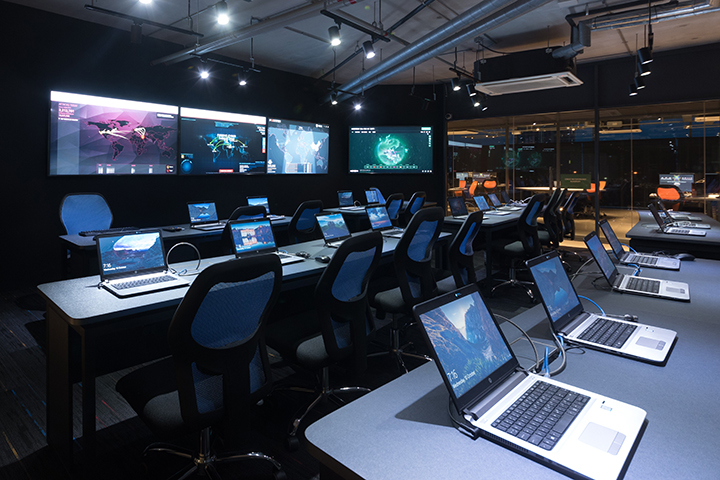Course Details
Requirements
Admission Requirements
- 3 Credits in at least 3 subjects at SPM level including Mathematics and any Science Subject (Science, Physics, Chemistry or Biology) with a minimum of a pass in Bahasa Malaysia, Sejarah (History) and English;
- 3 Credits (Grade C & above) in at least 3 subjects at IGCSE/ O-Levels including Mathematics and any Science Subjects (Science, Physics, Chemistry or Biology) with a minimum Pass in English at SPM/ O-Level/ IGCSE;
- 3 Credit (Grade B & above) in at least 3 subjects in UEC including Mathematics and any Science subject (Science, Physics, Chemistry or Biology) with a Pass in English;
- Pass Sijil Tinggi Persekolahan Malaysia (STPM) or its equivalent with a pass in Mathematics, English and ONE (1) relevant science/technical/vocational subject at the SPM level;
- Recognised Certificate in Engineering/Engineering Technology or its equivalent;
- Recognised related Vocational and Technical/ Skills Certificate or its equivalent with ONE (1) year of relevant work experience or a minimum of ONE (1) semester of a bridging programme;
Note: The above entry requirements may differ for specific programmes based on the latest programme standards published by Malaysian Qualifications Agency (MQA). The qualification and entry requirements for the programmes will be determined based on the "Comparison List of Equivalency of International Qualifications with SPM (O-Levels equivalent) and STPM (A-Levels equivalent)" published by Malaysian Qualifications Agency (MQA).
- IELTS : 5.0
- TOEFL IBT : 40
- Pearson (PTE) : 47
- MUET : Band 3.5
For more information please click HERE
PEO & PLO
-
Programme Educational Objectives
PEO 1: Be a practicing engineer contributing to the development of Mechatronic Engineering while demonstrating professionalism.
PEO 2: Pursue engineering innovation via career advancement opportunities and/or advanced studies in Mechatronic Engineering. -
Programme Learning Outcomes
The students, upon completion of their study, should attain the following outcomes
PLO1 Ability to gain and apply principles of Mathematics, Science and Engineering to the solutions of complex engineering problems PLO2 Ability to undertake complex engineering problem analysis and apply engineering principles to solve them. PLO3 Ability to design innovative solutions for complex engineering problems. PLO4 Ability to investigate complex engineering problems using research techniques. PLO5 Ability to select and use suitable tools and techniques for complex engineering problems. PLO6 Ability to engage in professional engineering practice for safety, health, social, cultural and legal responsibilities in developing solutions for complex engineering problems. PLO7 Ability to comprehend and demonstrate good practices of engineering in sustainable development and environmental considerations for the solutions of complex engineering problems. PLO8 Ability to execute the responsibilities of an Engineer professionally and ethically. PLO9 Ability to function effectively as a team leader or a member in a team within multi-disciplinary settings. PLO10 Ability to communicate effectively and professionally on complex engineering activities. PLO11 Ability to demonstrate entrepreneurship skills, engineering project management and economic decision making in multidisciplinary environments. PLO12 Ability to recognise the need for, and be able to engage in independent and life-long learning towards continuous professional development.
Programme Outline
What We Teach
This APU Diploma in Mechatronics Engineering is designed to provide:
- Knowledge, skills and attributes enabling them to develop a broad understanding on well defined challenges in the engineering industry in accordance with the Dublin Accord.
- Industrial training is incorporated into the syllabus to enable a generation of future proof aspiring engineers.
- Soft skills which include communication skills, teamwork and life-long learning skills which remain pertinent to the resolution of challenges encountered today and in the future are provided.
- Students with academic and professional skills to develop solutions requiring a holistic yet innovative outlook in mechatronic engineering.
- Students with opportunity to progress seamlessly into degrees recognized by the Washington Accord in relevant areas and a Masters in Engineering from the United Kingdom.
-
Semester 1
In the first semester, students will be taught Instrumentation focusing on control processes that use sensory technology. The Circuit Analysis module explains and finds out the current and voltage in each element of a network using Kirchhoff’s law, network theorems and nodal and mesh analysis. Software based Engineering drawing will also be introduced to complement manufacturing of product.
Modules
- Instrumentation
- Fundamentals of Engineering Mathematics
- Circuit Analysis
- Engineering Drawing
-
Semester 2
Continuation from semester 1; students study Mathematics in more depth. They would also learn the fundamental principle of logic circuits and their applications in digital system. Student are also exposed to number systems, Boolean algebra and Karnaugh map techniques to construct simplified digital circuits, latches, flip flops and simple asynchronous and synchronous counters. In addition, programming knowledge of the student is enhanced through Python.
Modules
- Engineering Mathematics 1
- Digital Electronics
- Programming with Python
-
Semester 3
Students enhance their mathematical proficiency while exploring analogue electronics for circuit design and analysis. They also gain hands-on experience with computer-aided design and manufacturing (CAD/CAM), effectively bridging theoretical knowledge with practical applications in engineering product development.
Modules
- Engineering Mathematics 2
- Analogue Electronics
- Computer Aided Design and Manufacturing
-
Semester 4
From semester 4 onwards, students are introduced to material science and robotics. Material science is used to apply the basic principles of chemistry and physics to understand the structure and properties of materials which is crucial when designing systems. Robotics deals with the design, construction, operation, and use of robots and computer systems for their control, sensory feedback, and information processing. Students could create their own robots using the knowledge they gained.
Modules
- Material Science
- Robotics
- Fundamentals of Entrepreneurship
-
Semester 5
Students study thermo-fluids, integrating thermodynamics and fluid mechanics. Programming skills advance through C language for structured problem-solving. Electives in applied mechanics, microprocessor systems, or petroleum engineering allow specialisation aligned with career aspirations.
Modules
- Thermo-Fluids
- Problem Solving and Programme Design Using C.
Elective 1:
- AMC Applied Mechanics
- Fundamental of Petroleum Engineering*
Elective 2:
- Microprocessor Systems
- Petroleum Geochemistry*
-
Semester 6
Students undertake an Engineering Project, applying knowledge from previous semesters to solve real-world problems. Electives allow specialization: PLC and Pneumatics for automation, Systems and Control for dynamic system regulation, or petroleum focused modules such as Reservoir Rock and Fluid Properties and Petroleum Geology. This semester emphasizes practical implementation, advanced control systems, and industry-relevant skills, preparing students for professional roles or further studies.
Modules
- Industrial Management, Safety and Ethics
- Engineering Project
Elective 3:
- PNS PLC and Pneumatics
- Elements of Reservoir Rock and Fluid Properties*
Elective 4:
- Systems and Control
- Petroleum Geology*
INTERNSHIP (16 weeks)
Students will undertake an Internship/Industrial Training for a minimum period of 16 weeks to prepare them for a smooth transition from the classroom to the working environment.PETROLEUM EXPLORATION SPECIALISM*
Student who intended to pursue Bachelor of Engineering in Petroleum Engineering with Honours in the future will need to take the modules with (*) as electives. -
Further Studies
Upon successful completion of this programme and fulfilment of requirements for credit transfer, you will be eligible to progress into Level 2 of the following degree programmes offered at APU.
- Bachelor of Electrical & Electronic Engineering with Honours
- Bachelor of Mechatronic Engineering with Honours
- Bachelor of Mechanical Engineering with Honours
- Bachelor of Computer Engineering with Honours
- Bachelor of Petroleum Engineering with Honours
For the full listing of our Diploma Programmes, please refer to the Pre-University programme brochure.
Facilities at APU
The APU Centre Point & Atrium serves as a melting pot of cultures from all over the world. Here, cultural activities are organised regularly at the campus, fostering long-lasting intercultural relationships among APU students, who come from over 130 countries.

Dual Degree
APU-DMU Dual Degree Programme
Students who are under Bachelor’s Degree Programme will have the option to opt-in for the APU-DMU Dual Degree Scheme. Under this Scheme, students will receive 2 Degree Certificates & Transcripts upon graduation: 1 from Asia Pacific University (APU), Malaysia and 1 from De Montfort University (DMU), UK.
Ready, Set, Go.
Whether you are locals or traveling here, we have the options for you to pursue your dreams.
RM50,800
Total for Malaysian
RM54,200
(USD14,265)
Total for International
Programme code : (N/0714/4/0001)(06/27)(MQA/PA15640)
All information is correct at the time of publication, but is subject to change in the interest of continuing improvement.
Note : All fees are payable in Ringgit Malaysia (RM). Any USD amounts indicated by APU are for reference only and are non-binding. The final amount payable is the RM amount stated in the official invoice, and the University will not entertain any claims arising from foreign exchange fluctuations.

Campus Facilities
Learn More
Pathways @ APU
Learn MoreEnglish Language Study
Korean Language
U-Start Programme
Want to know more ?
Let’s Connect